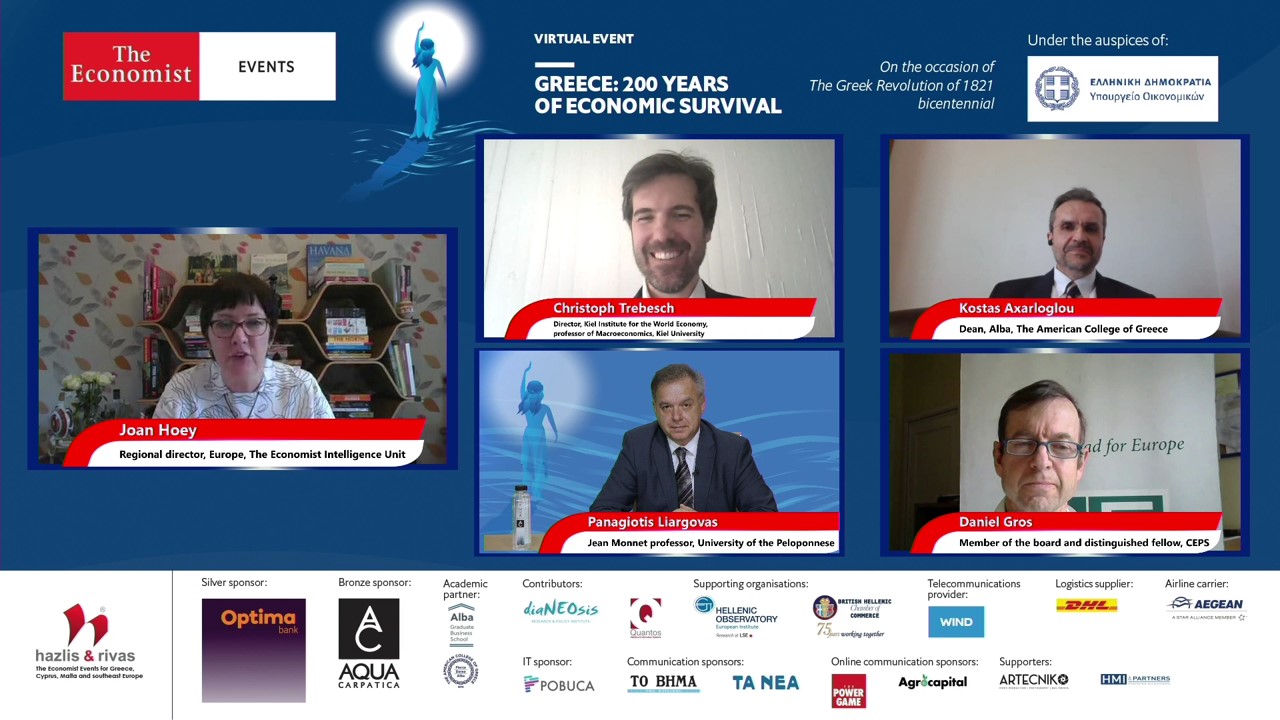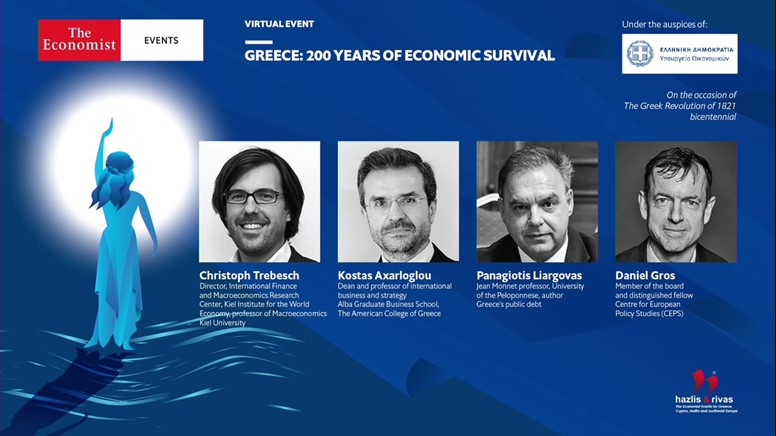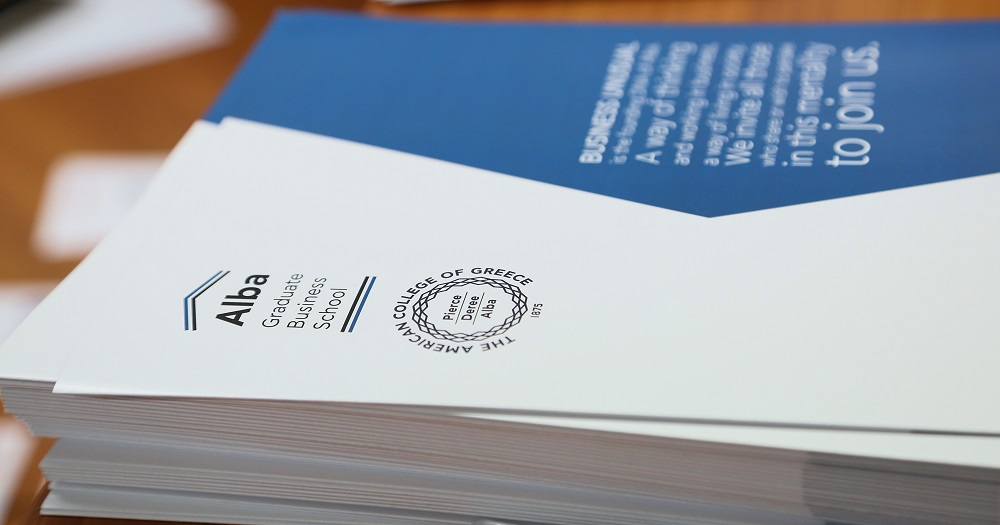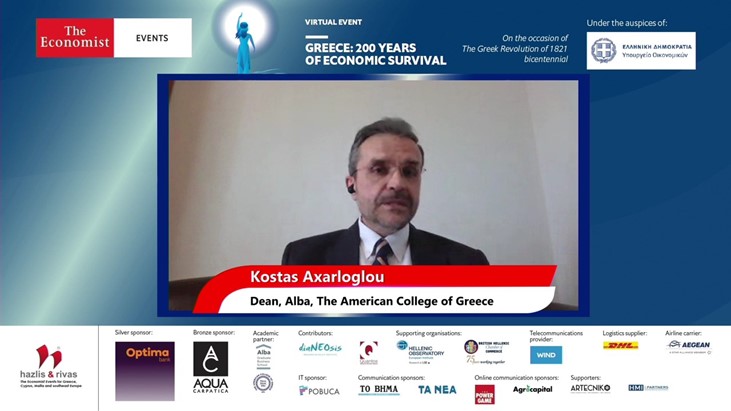Greece: 200 Years of Economic Survival
Alba at the online Economist Conference celebrating 200 Years of Economic Survival

Greece’s endeavors and accomplishments in the 200 years following the Greek Revolution of 1821, as well as the national goals and challenges in the upcoming years, were the topic of the digital event by Economist titled “Greece: 200 years of economic survival,” held on April 8, under the auspices of the Ministry of Economics.
Special emphasis was given in the progress and evolution of the Greek public debt, with an eye to the past and the future. At the same time, distinguished officials and analysts highlighted the Greek economy’s perspectives amidst the ongoing pandemic. The event’s works were co-ordinated by Joan Hoey, Regional Director, The Economist Intelligence Unit.
Among the participating speakers were former prime ministers, cabinet ministers, prominent international business and finance leaders along with and academics .
Dean Kostas Axarloglou, participated in the panel “Greek Public Debt: A Tale of Two Centuries, Part I”, together with Christoph Trebesch, Director, International Finance and Macroeconomics Research Center, Kiel Institute for the World Economy, professor of Macroeconomics, Kiel University, Panagiotis Liargovas, Jean Monnet professor, University of the Peloponnese, author, Greece’s public debt, and Daniel Gros, member of the board and distinguished fellow, Centre for European Policy Studies (CEPS).

According to Dr. Axarloglou, Greece’s over-borrowing and over indebtedness during the last two centuries has been, in most cases, the result of major disruptions – such as wars, the Great Depression, and of late, the COVID-19 pandemic. In explaining the reasons why most of the Greek debt is to foreign creditors, Dr. Axarloglou provided the following reasons: Greece has relatively low propensity to save and overall low savings; most of Greece’s private wealth is kept abroad and also in real estate (as opposed to public bonds and other financial assets) and Greece, being a small economy, is not easy to become the creditor of its public debt. Moreover, Dr. Axarloglou commented that the management and financing of high pubic debt goes through austere/recessionary fiscal policy, debt restructuring and economic growth to make financing the debt sustainable. He also stressed the need to develop a new Growth Model for the country that depends on: innovation, outward looking economy that leverages the global economy while he added that the new Growth Model could be supported by the EU Recovery and Resilience Facility/Plan.
Always mindful that throughout history, major disruptions have been at the root cause of a cascade of economic repercussions, and proposing a way to reverse this trend, Dean Axarloglou commented: “In modern history of Greece, in most of the cases the ballooning of public debt, and the fiscal default that followed, was the result of a major disruption in the country: to finance the Greek Revolution (1826), to build an army and infrastructure (1893) to manage the refugee inflows from Asia Minor and the Great Depression (1932). The COVID-19 pandemic has boosted again public debt, the result of an effort to support the society in managing the pandemic. The way forward in making the public debt sustainable is a new production model for the country that will bring it in a sustainable growth trajectory. And now is the time!”
Alba was the academic partner of the event, that attracted more than 5.500 participants from 27 countries.







